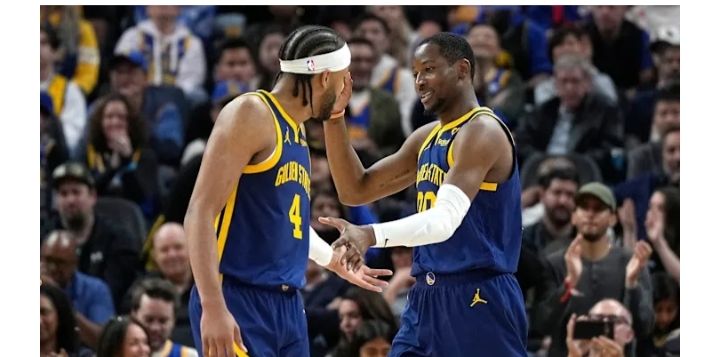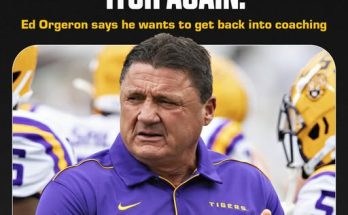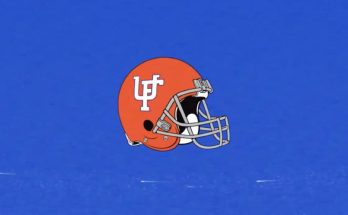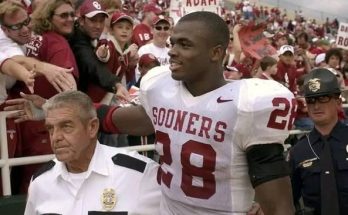The Golden State Warriors are facing a pivotal offseason, one that could define the next chapter of their storied dynasty. After a disappointing 2024–25 campaign that saw them exit the postseason early or miss it altogether, pressure has mounted on the front office to make bold moves. One of the most talked-about possibilities involves a trade that could see the team prioritize forward Jonathan Kuminga’s long-term value and upside, even if it means sacrificing fan-favorite Moses Moody in the process.
Kuminga, the 7th overall pick in the 2021 NBA Draft, has continued to show flashes of stardom with his elite athleticism, improved shot creation, and growing defensive versatility. Despite occasional growing pains, he’s arguably the Warriors’ most promising young talent. At just 22 years old, his trajectory is still pointing upward, and many believe he has All-Star potential if given the right developmental context and playing time.
Moses Moody, the 14th pick from the same draft, has been the picture of professionalism and steady growth. His ability to hit timely threes, defend multiple positions, and provide energy off the bench has made him a valued rotation player. While not as flashy as Kuminga, Moody brings a sense of reliability and composure rarely seen in young wings. His growth has been gradual but meaningful. The Warriors’ coaching staff has repeatedly praised his work ethic and team-first mentality.
However, as Golden State seeks to retool around Stephen Curry for what could be his final peak seasons, the team might have to make some hard decisions—particularly if they want to bring in a veteran star who complements Curry’s timeline. This leads us to the possibility of a high-stakes trade, one that could involve packaging Moody alongside salary fillers and draft capital to either keep Kuminga or acquire a player who significantly moves the needle now.
The rationale is simple: Kuminga has more upside. In trade talks, he commands more interest from opposing teams, but he also represents a rare internal bridge between the present and the future. Golden State’s leadership, including general manager Mike Dunleavy Jr. and head coach Steve Kerr, are likely weighing the long-term implications of parting with a player who could eventually take the reins once Curry, Klay Thompson, and Draymond Green move on or decline further.
But keeping Kuminga might come at the cost of Moody. In a salary-capped league with an increasingly punitive luxury tax, the Warriors can’t afford to keep all their promising young pieces if they aim to remain competitive now. With Andrew Wiggins’ future uncertain and the bench in flux, the front office is reportedly exploring deals that would package Moody with other assets to acquire a veteran wing or forward who can contribute immediately.
Sources close to the organization suggest that teams like the Toronto Raptors, Indiana Pacers, and Brooklyn Nets have all shown interest in Moody, especially if he’s part of a larger package that includes draft capital or expiring contracts. Toronto, in particular, has long been linked with Moody since the 2021 draft, and a deal involving veterans like OG Anunoby or Pascal Siakam could resurface depending on their contractual situations. Similarly, the Nets may look to move players like Dorian Finney-Smith or Cam Johnson, who fit the Warriors’ needs for versatile defense and shooting.
What complicates matters is that Moody is not just a throw-in. He’s a developing player in his own right, and parting with him now may result in regret later. He’s shown the ability to rise in big moments, most notably in playoff settings where he’s proven unafraid of the spotlight. His calm demeanor and willingness to defend elite wings have endeared him to both teammates and coaches. Furthermore, his age (22) and team-friendly contract make him an ideal complementary piece on a roster built around high-salaried veterans.
Nevertheless, the Warriors are dealing with a shrinking window. Stephen Curry is still elite, but time is catching up. Draymond Green remains a defensive genius, but his offensive limitations are more pronounced than ever. Klay Thompson, whether he re-signs on a discount or departs in free agency, is no longer the two-way force he once was. To maximize what’s left of this core, the Warriors must find a way to stay competitive without compromising their future entirely—a nearly impossible tightrope walk.
One option on the table is to keep Kuminga and use Moody in a deal to obtain a starting-caliber forward, someone who can both guard top perimeter threats and contribute offensively. This hypothetical trade would ideally involve a player who can play alongside both Curry and Kuminga without taking away from their strengths. Such a move would make sense if the Warriors believe Kuminga can take another leap this season and become a consistent starter.
Still, any trade that sends out Moody will be met with some degree of backlash. He’s grown into a cult favorite among the fan base, partly because of his unassuming personality and partly because he represents the kind of player every title team needs—a reliable, defense-first wing who doesn’t demand touches but still makes winning plays. He’s the type of player that championship teams regret losing when the postseason comes and rotations shrink.
This is the conundrum Golden State faces: do you bet on the present, hoping that a veteran addition will make them a legitimate contender again, or do you prioritize the development of Kuminga and Moody, potentially accepting that the title window has narrowed for now but could reopen later with new faces at the forefront?
There’s also the financial aspect. The Warriors are deep in the tax and have committed significant money to Curry, Green, Wiggins, and possibly Thompson again. They need cost-controlled contributors like Moody to balance the books. Trading him for a more expensive player could push the payroll even higher and trigger even harsher repeater penalties. That said, Warriors owner Joe Lacob has historically been willing to spend big if it means keeping the team in title contention.
But this summer feels different. There’s a sense of urgency that hasn’t existed in years. Perhaps it’s because the Western Conference is more competitive than ever, with teams like Denver, Minnesota, Oklahoma City, and Dallas all looking poised to dominate the next several seasons. The Warriors no longer feel like they’re just a tweak away. They need a transformational move to truly contend again—and they know it.
That’s why trading Moody might be less about giving up on him and more about choosing to invest in Kuminga. By making that decision, the front office would be signaling that they see Kuminga as a foundational piece, not just an asset. And to truly unlock his potential, the team needs to give him more minutes, more responsibility, and more space. That’s hard to do with both him and Moody competing for similar roles on the wing.
Ultimately, this isn’t just about roster construction. It’s about direction. If the Warriors choose to trade Moody to protect Kuminga’s future and bring in a win-now piece, they’ll be threading a very narrow needle. The new addition must be the right fit, both in skill set and in personality, to avoid another failed experiment like the brief D’Angelo Russell era or the uneven integration of Jordan Poole.
Should Golden State make the move and it works, they could buy themselves another deep playoff run, potentially even another Finals appearance. But if it fails—and Moody flourishes elsewhere while the new piece underwhelms—it could be seen as the beginning of the end of a dynasty that has long defined the modern NBA.
In the coming weeks, as free agency unfolds and trade rumors heat up, the Warriors’ decision on Moody will be one of the most telling signs of where the franchise sees itself. Are they still chasing rings with the old core, or are they finally preparing to pass the torch?
Whatever path they choose, the sacrifice of a player like Moses Moody will not come lightly. It may just be the cost of preserving one final shot at glory while still holding onto the future in the form of Jonathan Kuminga. And in a league that rarely allows you to have it both ways, the Warriors are gambling that this high-stakes tradeoff might just let them do exactly that.



